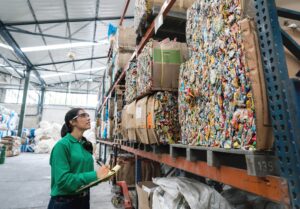Advanced recycling
 The challenge
The challenge
Advanced recycling is also referred to as feedstock, molecular or chemical recycling. It involves a range of technologies that convert plastics back into their chemical building blocks.
There is a lack of awareness regarding what plastic advanced recycling is and its potential applicability to the Australian context.
In Australia, many hard to recycle plastics end up in landfill.
Our response
CSIRO’s report, Advanced recycling technologies to address Australia’s plastic waste evaluates advanced recycling pathways to convert plastic waste into valuable resources to build Australia’s circular economy.
The CSIRO report aims to build awareness of advanced recycling technologies, how they apply to different plastic types, and the key factors to enable adoption and scale up of these technologies in Australia.
Impact
Advanced recycling could help Australia meet its national target of 70 per cent of plastic packaging recycled or composted by 2025, and 80 per cent average recovery rate from all waste streams by 2030.
An advantage of these technologies is that they can turn hard-to-recycle plastics, such as mixed, multi-layer, flexible or contaminated plastics back into food grade recycled plastics or other products through chemical, thermal or biological processes.
Another benefit of these technologies is that they complement existing mechanical recycling options to increase Australia’s recovery of waste plastic. Polymer or product types that may not be suitable for mechanical recycling can be processed through advanced recycling technologies.
Read the pdf report: Advanced recycling technologies to address Australia’s plastic waste
Text version of the report: Advanced recycling technologies to address Australia’s plastic waste
Watch the webinar to hear key insights from our report:

